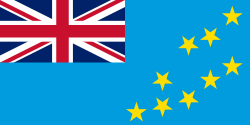
Kulia is the administrative center and capital of the district of Niutao in the Pacific island state of Tuvalu. [1] Kulia is located in the west of the main island of Niutao. The place has 224 inhabitants as of 2010. Historically, Kulia was known as Tuapa. [2]
Kulia has a church of Te Ekalesia Kelisiano Tuvalu, a post office, and school.
